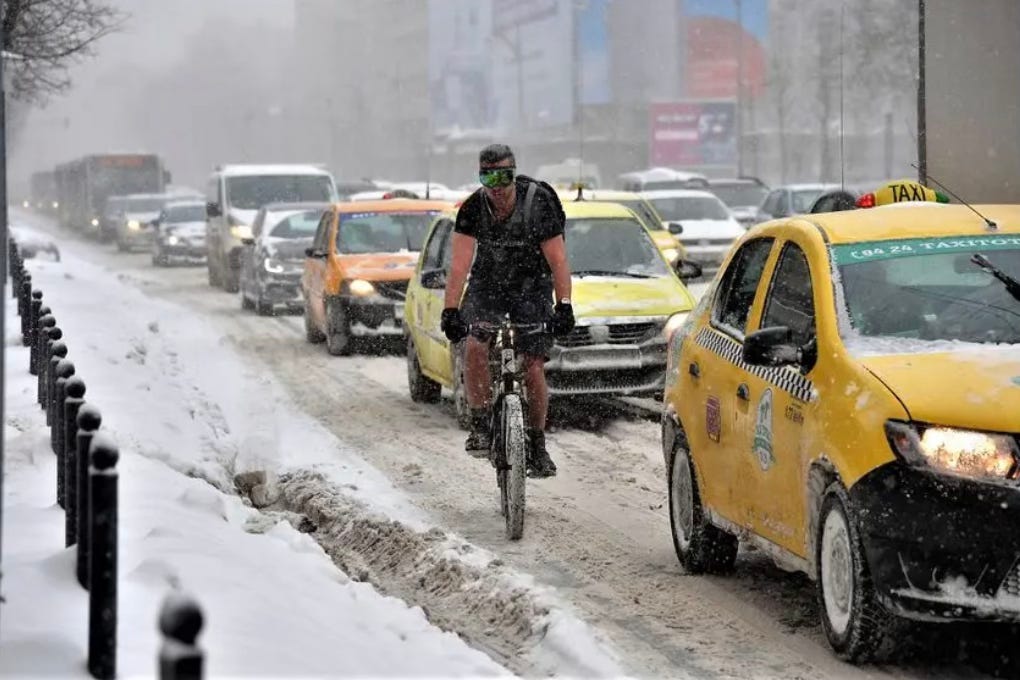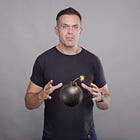Intermittent fasting changed my life
I can honestly say that the moment I discovered intermittent fasting changed my life.
I lost weight in 2010 and have kept my figure ever since, but I only discovered intermittent fasting (IF) 3 years later, in 2013.
✅ YOU ALREADY KNOW I’M A HARD CASE
You may not believe what I’m about to tell you, but from 2010 to 2013:
I weighed all my food;
I kept strict diaries;
I counted calories.
I had weight problems and I yo-yoed all the way from the age of 9 to 29 (in 2010).
That’s when I swore to myself that I would lose weight and never gain it back.
In 2010 I did what I had never done before: I really started studying and researching.
✅ EVERYTHING BY THE BOOK
Believe me when I tell you that all the weight loss literature out there is about:
counting calories;
weighing food;
keeping journals.
And rightly so, because the only clinically proven way to lose weight is calorie deficit.
That is, eating fewer calories than your body needs over a long period of time.
How else can you eat fewer calories if you don't know how many you're actually eating, right?
Intermittent fasting changed my life because it helped me get rid of the burden of weighing food and counting calories.
Currently, our members are losing 50-60-70 or even 80 kilos:
without counting calories;
without weighing food;
or keeping journals.
✅ WHAT IS INTERMITTENT FASTING?
What does intermittent fasting mean? Well, it’s when you wake up, have your coffee, skip breakfast and eat lunch, then eat again in the evening.
✅ IT’S NATURAL
That is, you don’t eat just because someone told you that breakfast is “the most important meal of the day”.
You’ll simply eat later in the day when you actually get hungry.
As is natural and normal and natural.
✅ WHY DOES IT WORK?
No, it really has nothing to do with autophagy - as I thought 10 years ago.
The reasoning is simple. If you go from 3 meals a day to 2 meals a day,
you are actually switching from 90 meals a month to 60. In other words,
When you reduce the frequency of your meals, you exponentially increase the likelihood of eating less overall.
I’ll let you enjoy the full article about intermittent fasting but especially how to put it into practice.
✅ IS MORE FASTING BETTER?
That was my reasoning.
If you switch from 3 meals and 2 snacks (the key to the greatest frustrations), to 2 meals a day…
Then having just one meal a day should be even better, right?
That would be logical, but both specialized literature and practice together with thousands of people have shown us otherwise.
OMAD is the abbreviation comes from One Meal A Day. It used to be quite the fad.
✅ FASTING FOR MORE DAYS
I confess that after I discovered intermittent fasting, I tested all possible variations with members of the community - for about 5 years, until 2018.
From 8/16 (hours) to 4/20 (hours), OMAD, eating every other day, including not eating for 2 or more consecutive days.
8/16: you have all your meals in an 8 hour interval and during the remaining 16 you don't eat anything;
20/4: you have all your meals in a 4 hour interval and during the remaining 20 you don't eat anything.
After all, if you don't eat anything for a few days, you’ll naturally lose weight faster.
I wrote novels about long-term fasting, but here is the story in short:
If you are 40-50-60 kilos overweight and you experience days when you don't feel hungry at all, maybe it would be worth it for you to do 1-2 days of fasting 2-3 times a month.
If you're in the last stretch (you need to lose those pesky 5-10 extra kilos), then the best thing would be to have 3 regular meals a day with an adequate intake of protein, together with walking, training - you know: the works.
The rules of the fasting game are dynamic and vary quite a lot depending on age, weight and goals.
✅ RUNNING MARATHONS
And another thing: this comes from my experience of experience running marathons and triathlons. I did that for over a decade.
If you are overweight, no doctor should recommend you to run.
Let alone taking part in marathons.
But I think it's worth reaching a good weight and then learning how to run properly.
I think it's a great idea to be fit and be able to run for pleasure once a week for 30-40 minutes.
You never know when an emergency will arise and you'll need to be able to run for 5 minutes or 50. It's not a matter of if, but of when.
Once you're at a good weight and you're clinically healthy and fit, why not set your sights on running a marathon?
Training for, running and finishing a marathon is a great experience.
I'm not telling you to start running marathons, but to set your sights on doing it once in your life - maybe.
If you manage to run 42 kilometers once, then 5 or 10 kilometers of running will seem like a piece of cake at any given time after that.
You never know when you might need to run tens of kilometers (in case of war, for example).
I believe it's good to be healthy, well rested, well-fed and fit for effort.
Because you never know.
✅ FASTING MARATHONS
The same goes for long-term fasting.
I don't recommend starving yourself, eating once a day or not eating for days on end.
But I think it's very useful in life to know how your body reacts when you have to go without food for 2-3 days.
Because you never know when you'll have to go without eating for days on end.
I don't want to mention war, a cataclysm or an alien attack, because you'll say I'm exaggerating again.
✅ PREVENTION MARATHONS
But here's a good reason.
"Colorectal cancer is one of the most common types of cancer worldwide.
It represents approximately 10% of all cancer cases and it is the second largest cause of cancer-related deaths globally."
Source: CLICK.
If you have a colonoscopy every 2-5 years starting at age 40, you can eliminate the risk of colon cancer.
The idea is that 48 hours before having a colonoscopy, you are not allowed to eat anything.
See? Knowing how to fast is also a life skill that you will need, sooner or later.
I think you get the idea: you don't have to run marathons or go without food for days on end, but it is useful:
to know you are able to run for an hour, if needed;
to know you are able to go without food for 2 days, if needed.
The problem is that:
You learn by doing, not by contemplating.
That is, you have to get to work, not just read articles.
You have to train so you can get out of your comfort zone. So that you’ll know exactly what you need to do in a crisis situation.
It's no use watching a Heimlich maneuver and CPR in movies if you don't prepare in real life.
Until you do it, you will never learn.
You learn by doing, not by contemplating.
Wait, there’s more.
✅ POLAR MARATHONS
If you've been following me for a while, I guess you already know that I've been passionate about cold exposure.
For 5 years, regardless of the weather, I rode in winter wearing only shorts and a T-shirt.

I was a Wim Hof instructor for 3 years and held hundreds of workshops (2-3 every week).
Moreover, I took daily ice baths for 2 years.
Over 5 years, I have learned:
how to stay still in ice water for 10 minutes;
how to walk for 2-3 hours in minus 10 degrees temperatures wearing just shorts - without shivering for even a second;
how to train in order to be in total control in an extreme situation where I could be exposed to the cold.
I'm not saying you should do what the mad man does.
But I think it's an experience:
to learn how to do the Wim Hof breathing correctly;
to learn how to manage your emotions and breathing when taking an ice bath in the presence of a certified instructor;
to learn how to breathe and warm up immediately after the bath with specific exercises (Horse Stance, squats) in a controlled environment;
to learn how to think about the whole experience (mindset);
to learn how to remain calm in a similar situation so you can take action.
What will you do if your child accidentally slips and falls into ice-cold water?
Will you freeze in fear?
I don't want to speak of doom and gloom, but it's good to be prepared.
Unfortunately, it all comes down to the practical part. It's useless if you just read and you don't put what you read into practice.
"In theory we are all aces, but it’s the practice that will kill us."
And you know why? Because you can only learn by doing, not by contemplating.
Thank you for your attention.
Would you be open to supporting us with just 0.2 EUR per day so we can write in a more effective manner?
Click the button below.
Keep reading with a 7-day free trial
Subscribe to Valentin Bunea English Edition to keep reading this post and get 7 days of free access to the full post archives.






